- Home
- Jim Eldridge
Escape from Pompeii
Escape from Pompeii Read online
For Jack, Albert and Lila from their Grandad.
Contents
Cover
Dedication
Prologue: 24 August AD 79 Pompeii
Chapter 1
Chapter 2
Chapter 3
Chapter 4
Chapter 5
Chapter 6
Chapter 7
Chapter 8
Chapter 9
Chapter 10
Chapter 11
Chapter 12
Chapter 13
Chapter 14
Chapter 15
Historical Note: The Destruction of Pompeii
Chapter 1
Copyright Page
PROLOGUE
24 AUGUST AD 79 POMPEII
I hurried to the square in Pompeii and saw eight priests, standing in a circle, offering loud prayers to the god Vulcan. Next to them was a pile of wooden crates, each with squawking chickens inside. Standing by the crates was a soldier with a knife in his hand. A crowd had gathered round the priests.
Then I saw my father. He was climbing up on a plinth. A statue had fallen off the plinth and lay broken beside it.
To my horror, he began to shout at the priests and the people.
“People of Pompeii, listen to me! This earthquake is nothing to do with Vulcan. Vulcan does not exist!” As the people turned away from the priests and looked towards my father, horrified by his words, he pointed towards the mountain, Vesuvius.
“This earthquake is caused by the fires raging under Vesuvius. There is nothing you, or the priests, can do about it. Vesuvius will explode. And when it does it will shower this city with hot ash. Rivers of fire will pour down from the mountain. You will all die unless you leave now and get to higher ground away from the mountain. Flee!”
There were loud shouts of anger from the crowd, as they began throwing rocks at my father and shouting: “Silence him! It is his fault! He insulted Vulcan!”
The rocks hit my father and he fell backwards onto the cobbles. I ran to help him up, as others also rushed towards him, some arming themselves with wooden sticks.
My father scrambled to his feet, grabbed me by the hand and dragged me into a side street. He was bleeding from a gash in his head where a stone had hit him.
“We have to make people see the truth, Marcus!” he panted. “We have to save them!”
“No!” I shouted at him. And now I felt tears stinging my eyes. “They’re right! This earthquake is all your fault. You have insulted Vulcan! I hate you! I hate you!”
And with that, I ran away from him as fast as I could.
Hot flakes rained down. The earth shook. Buildings cracked and fell. People cried out in fear and ran.
CHAPTER
1
Our small two-wheeled cart trundled along the winding country road, pulled by our old horse, Pallas. We were on our way to Pompeii. It’s a journey that my father, Lucius, and I do every year. We travel from our small cottage in the country, twenty miles outside Pompeii, to celebrate the Festival of Augustus with my father’s brother and his family: my Uncle Castus, Aunt Drusilla and their six-year-old twins, Fabius and Julia.
There are lots of festivals throughout the year, mostly in praise of the gods to keep them happy with us. The gods are all-powerful and there are hundreds of them, each one ruling a different part of life. There is Neptune, who controls the sea; Mars, the god of war; Venus, the goddess of love; Vulcan, the god of fire and volcanoes. Vulcan lives in a huge cave, deep beneath the earth, where he hammers at his forge making gates to control the fires that rage underground. Over them all is Jupiter, king of all the gods. We don’t attend many of the festivals to celebrate the gods. My father says he doesn’t believe in the gods. He says things happen because of nature, not because gods cause them to happen. I wish he wouldn’t talk this way, but he does. Sometimes I think he says things like this just to annoy people. Other times I think he does it because he is mad. The priests have warned him not to say such terrible things – they believe that the gods will take revenge on him.
Uncle Castus says that my father became crazy when my mother was killed in an earthquake ten years ago. I was just two years old at the time. I can’t remember much about my mother. I remember the warm smell of her when she cuddled me, but that is about all.
After the earthquake my father was left to bring me up on his own.
My mother’s death made him so angry he began to speak out against the gods, saying they must hate humans to kill us like that. Then he started saying that there were no such things as gods. He said everything that happened was a natural thing: earthquakes, rain, volcanoes and storms – they were nothing to do with the gods. He said if we learned to understand nature we could stop these dreadful things happening.
At first people laughed at him, but when he carried on saying things like that the priests said he was mad and dangerous and would be locked up if he didn’t shut up.
But my father didn’t shut up. And they didn’t lock him up. So he carried on saying the same mad things.
The trouble was other children didn’t want to be friends with me, because of my father.
When he wasn’t saying mad things about the gods, my father worked as a land engineer. It started because of his obsession with earthquakes and volcanoes – trying to find out how and why they happened. He studied how different plants grew better in different soils, how water drained faster from some places than it did from others, and everything else to do with land. The result was that farmers and landowners hired him to get the best crops from their fields.
And they were glad to pay him, until inevitably the subject of the gods would come up. They would ask him which gods they should sacrifice to in order to get the best harvest, or to make their lambs and goats grow faster. When they did this, my father would start his rant about how there were no such things as the gods. When he did that, the farmers would tell him they no longer wanted him on their land – they believed if he stayed, the gods would punish them.
That was why we never had much money. Every time he started a new job, it would go wrong. By the time I was eight my father had the reputation of a madman, and no one would hire him. So we lived in our small house. My father fed us with fruit and vegetables he grew, and we both cut wood to keep the fires warm.
Now and then we’d travel to Pompeii to visit my uncle and his family, and stay the night with them before travelling back home. Or sometimes we’d go to Herculaneum, the next big town. I was always glad when we did this because it was fun to be in a busy town, with the markets and lots of people bustling around.
At this time of year we travelled to Pompeii twice: once for the festival of the harvest, celebrating the crops being gathered in, and again for today’s festival celebrating Augustus, the first and greatest emperor of Rome. It was Augustus who created the Roman Empire, which rules the whole world.
Yesterday had been the Vulcanalia, when sacrifices and prayers were said for the god Vulcan. This is why I thought it was strange when I felt the ground begin to shake beneath me. There had been other signs on our journey that showed that Vulcan was unhappy: the sound of thunder from beneath the earth; smoke coming from the mountain, Vesuvius. Vesuvius was just two miles from where we were, and towered over the landscape. We often had small earthquakes and earth tremors, but these seemed stronger than usual. Why was Vulcan so angry? Had yesterday’s festival not been to his liking?
Pallas, our old horse, stopped suddenly while pulling our cart along the country road. He stood, trembling, his ears laid back in fear.
“Vulcan is angry,” I said.
“There is no Vulcan, Marcus,” said my father. “Haven’t you listened to anything I’ve told you? This earthquake being is caused by th
e volcano, Vesuvius, not by a god.”
“Shut up!” I shouted angrily at him. “The gods will strike you down for saying that!”
Suddenly there was a huge tremor and a crack appeared in the road ahead of us. Pallas let out a frightened neigh and reared back.
There was the sound of an explosion from Vesuvius. Huge rocks began to roll down the mountain, some of them heading straight for us. A massive boulder bounced from a field and hit our cart. My father and I were hurled out onto the road. I was just scrambling to my feet when I saw another huge boulder hurtling towards us.
CRASH!
My father and I just managed to dodge to one side, but the boulder smashed into the cart. I saw Pallas fall to the ground. As I ran towards him, I could see that our old horse was dead.
CHAPTER
2
I was standing looking down at poor Pallas and thinking that this was Vulcan’s revenge for what my father had said, when I heard my father call out, “Marcus, look at this!”
I turned and saw that he had run into a field. I ran after him, and saw that there were sheep lying on the ground.
“They’re dead!” he shouted. This seemed to make him happy, which I thought was odd. But then, a lot of what my father did was odd.
“Smell that air, Marcus!”
I did. It stank. It was like the smell of bad eggs, but much worse. And it was hot.
“That’s what killed these sheep. The smell is coming from holes where the ground has cracked open. It’s coming from the fires under the ground. The fire from the volcano is spreading beneath the earth. It proves I’m right! We must hurry to Pompeii and warn the people!”
“Warn them about what?”
“That the volcano is building up to an eruption. If that happens, Pompeii will be in danger. Come on, Marcus! We have to hurry!”
“We can’t go anywhere,” I said. “The cart is broken and Pallas is dead!”
I looked again at our poor dead horse. I felt tears come to my eyes as I remembered all the happy times I’d spent with him: walking behind him as we ploughed our small field, and riding him as he trotted gently along.
“We can run! shouted my father. “We aren’t far from Pompeii.”
He started to run along the road towards the city. I shook my head in disbelief. I couldn’t understand how he could be so heartless about Pallas! But when my father got obsessed, he didn’t pay attention to anything else; not to me, not to Pallas, not even to our home. I ran after him.
“No, father! Please stop saying these things!” I pleaded.
“But I’m right!” he said as we ran. “The bad smell shows that gases are being forced out from under the ground. It’s caused by pressure from the volcano. With that sort of pressure building up, Vesuvius is going to explode. And when it does, all that fire will come out in rivers of hot rock. They will pour down on Pompeii. We have to warn the people that they must leave the city.”
“No! Father, stop! Please just stop.” I shouted. “This is happening because Vulcan is angry. The mountain is shaking because something must have gone wrong at the Vulcanalia yesterday. That’s what the priests say, and they know about this sort of thing! Earthquakes happen all the time, but they don’t mean that a volcano is going to blow up.”
My father shook his head.
“This one is different. The priests are wrong. Prayers and sacrifices won’t stop the mountain blowing up and killing everyone. Even if the people won’t listen to me, we must get my brother and his family to safety.”
He carried on running. As always, I felt angry at the way he embarrassed us by insisting he was right and everyone else was wrong. Why couldn’t he just be normal? I was sure the priests would find a way to make Vulcan happy and Vesuvius would settle down.
But then I thought of the earthquake that had killed my mother, and so many others, ten years ago. If things did get worse, then we had to help my uncle and aunt and my two little cousins to safety.
I ran after my father, towards Pompeii.
CHAPTER
3
Things were getting worse as we reached Pompeii. The ground was shaking more and more. It seemed worse in the city than it had in the country because the buildings looked as if they were about to fall down at any moment. Some big statues had already toppled over and I saw two drinking fountains that had cracked open. Water was pouring out of them and running down the street.
There were also strange flakes falling from the sky, like big snowflakes. Only these flakes were grey and warm.
“What are these?” I asked my father, picking up a handful of the flakes from the ground.
“They’re from inside the mountain,” he said.
I looked at Vesuvius and saw that a big cloud of smoke was rising up from it and spreading out. These flakes must have come up in the cloud and then carried to Pompeii on the wind.
Now, for the first time, I began to feel worried. I’d felt earthquakes and tremors before, but I’d never known flakes like this to come from the mountain.
It looked like people were starting to panic. Some were rushing out of their houses because they were worried they might collapse on them, others were kneeling down in the street offering loud prayers to Vulcan, begging him to stop the earth shaking.
When we reached my uncle’s house, Uncle Castus and Aunt Drusilla were inside. They were packing a few belongings, helped by my cousins Fabius and Julia.
“Castus!” shouted my father.
“Greetings, Lucius,” said my uncle. “Welcome. And you too, Marcus. I hope you are well.”
“You have to leave the city!” my father urged them. “Vesuvius is about to explode. This whole city will be destroyed!”
“Calm yourself,” said my uncle. “It’s nothing more than a few tremors. You know it’s always been like this. The priests are taking care of it.”
“They are in the square right now offering a sacrifice of twelve chickens to Vulcan,” said Aunt Drusilla.
“Then why are you packing?” demanded my father.
“In case it takes a little longer,” said Uncle Castus, smiling calmly at the children. “We will stay in a wooden shed until the tremors are over.”
“No, you must leave the city!” shouted my father. “Otherwise you will all die!”
At this, my little cousins looked absolutely terrified and began to cry. As Aunt Drusilla went to comfort them, my uncle grabbed my father by the arm and dragged him roughly into another room. I followed.
“Stop it!” Castus snapped at my father. “Pull yourself together. You are scaring Fabius and Julia. You heard what I said, the priests are dealing with it.”
“They can’t deal with this, Castus. The mountain is going to explode! I have seen the signs.” And he started to tell him about the dead sheep and the smell in the fields.
“No!” shouted Castus, putting his hands over his ears. “This is madness, Lucius! Ever since Olivia died, in that earthquake, you have been saying these crazy things. Her death was tragic, but it was the will of the gods! The gods rule us, and the priests are the only ones who can speak to the gods. They will appease Vulcan and stop this.”
“Please, Castus! I beg you! Come with me and Marcus. Let’s leave this city,” said my father. “I tell you, Pompeii will be destroyed and everyone in it will die!”
I could see that my uncle was trembling with anger. He pointed at the door to the street.
“Get out!” he shouted. “I will not have you coming here and scaring my family this way. You may be my brother, but I will not allow it!”
“Very well!” retorted my father. “If you won’t let me save you, perhaps there are others who will listen to me. Come, Marcus!”
With that my father ran out of the house, just as another tremor shook it, making ornaments and vases fall off the shelves and tables and crash to the floor.
I heard Fabius and Julia yelp in fear, and Aunt Drusilla making comforting noises. I looked at my uncle and gave a shrug of apology.
“I’m sorry, Uncle,” I said. “I’ll try and talk to him. I wish he would listen to you, but you know he doesn’t listen to anyone. I’d better go and look after him.”
I ran out of the house, not sure where my father would have gone. Then I remembered what my aunt had said: a sacrifice of chickens was being made in the square. If that’s where everyone was, that’s where I’d find my father – he’d want a big audience.
I hurried to the square in Pompeii and saw eight priests, standing in a circle, offering loud prayers to the god, Vulcan. Next to them was a pile of wooden crates, each with squawking chickens inside. Standing by the crates was a soldier with a knife in his hand. A crowd had gathered round the priests.
Then I saw my father. He was climbing up on a plinth. A statue had fallen off the plinth and lay broken beside it.
To my horror, he began to shout at the priests and the people.
“People of Pompeii, listen to me! This earthquake is nothing to do with Vulcan. Vulcan does not exist!” As the people turned away from the priests and looked towards my father, horrified by his words, he pointed towards the mountain, Vesuvius.
“This earthquake is caused by the fires raging under Vesuvius. There is nothing you, or the priests, can do about it. Vesuvius will explode. And when it does it will shower this city with hot ash. Rivers of fire will pour down from the mountain. You will all die unless you leave now and get to higher ground away from the mountain. Flee!”
There were loud shouts of anger from the crowd, as they began throwing rocks at my father and shouting: “Silence him! It is his fault! He insulted Vulcan!”
The rocks hit my father and he fell backwards onto the cobbles. I ran to help him up, as others also rushed towards him, some arming themselves with wooden sticks.
My father scrambled to his feet, grabbed me by the hand, and dragged me into a side street. He was bleeding from a gash in his head where a stone had hit him.
“We have to make people see the truth, Marcus!” he panted. “We have to save them!”
“No!” I shouted at him. And now I felt tears stinging my eyes. “They’re right! This earthquake is all your fault. You have insulted Vulcan! I hate you! I hate you!”

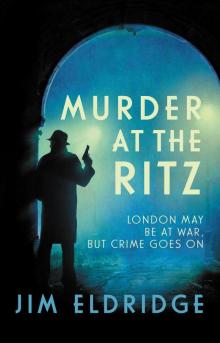 Murder at the Ritz
Murder at the Ritz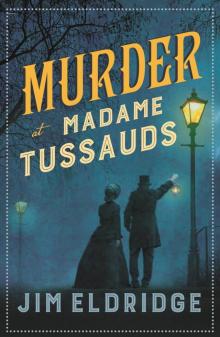 Murder at Madame Tussauds
Murder at Madame Tussauds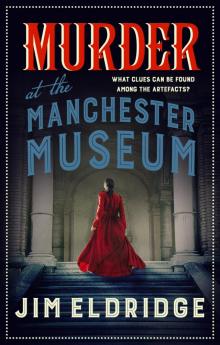 Murder at the Manchester Museum
Murder at the Manchester Museum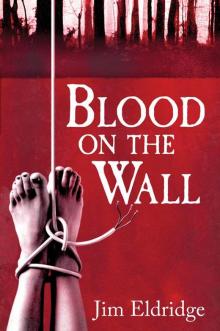 Blood On the Wall
Blood On the Wall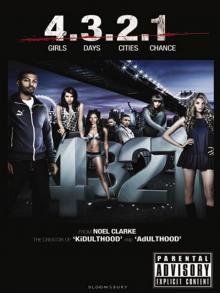 4.3.2.1
4.3.2.1 Jungle Kill (Black Ops)
Jungle Kill (Black Ops)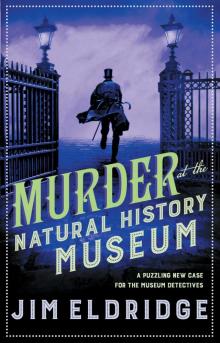 Murder at the Natural History Museum
Murder at the Natural History Museum Murder at the British Museum
Murder at the British Museum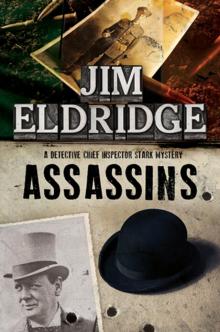 Assassins
Assassins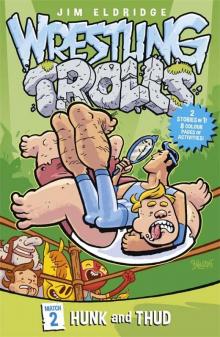 Hunk and Thud
Hunk and Thud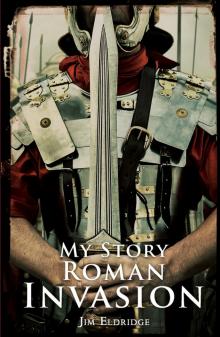 Roman Invasion
Roman Invasion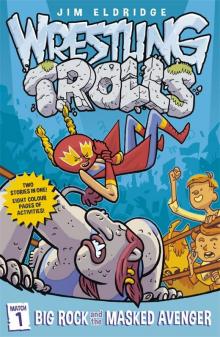 Big Rock and the Masked Avenger
Big Rock and the Masked Avenger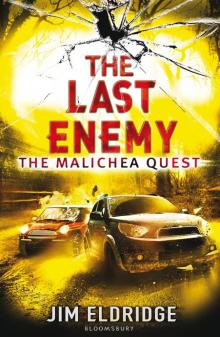 The Last Enemy
The Last Enemy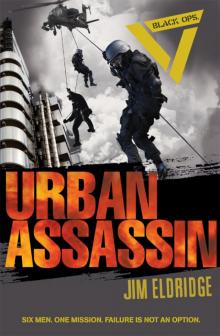 Urban Assassin
Urban Assassin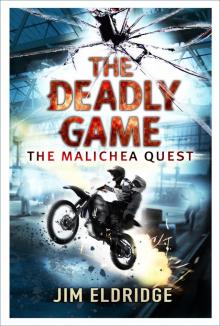 The Deadly Game
The Deadly Game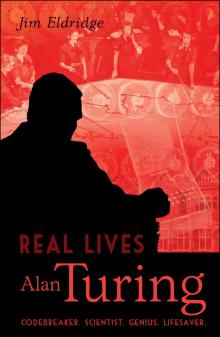 Alan Turing
Alan Turing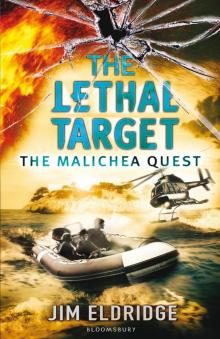 The Lethal Target
The Lethal Target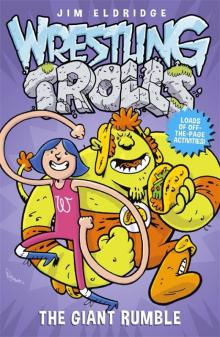 The Giant Rumble
The Giant Rumble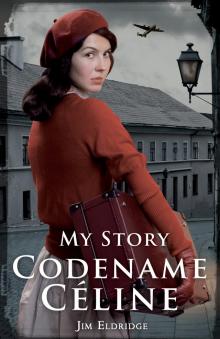 Codename Céline
Codename Céline Death in the Desert
Death in the Desert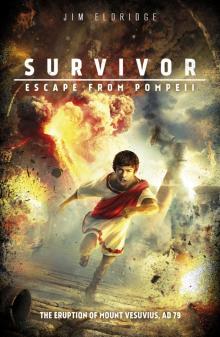 Escape from Pompeii
Escape from Pompeii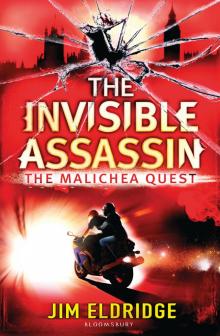 The Invisible Assassin
The Invisible Assassin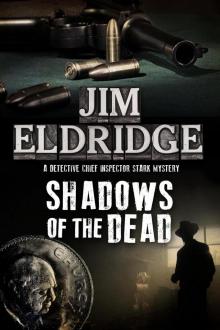 Shadows of the Dead
Shadows of the Dead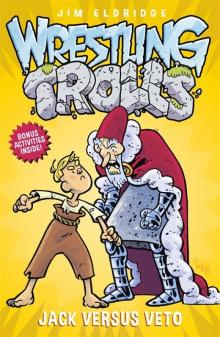 Jack Versus Veto
Jack Versus Veto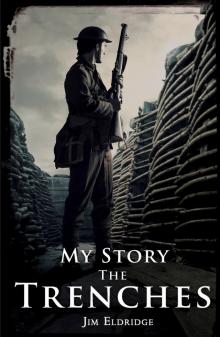 The Trenches
The Trenches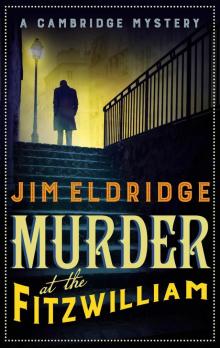 Murder at the Fitzwilliam
Murder at the Fitzwilliam Coming Home
Coming Home